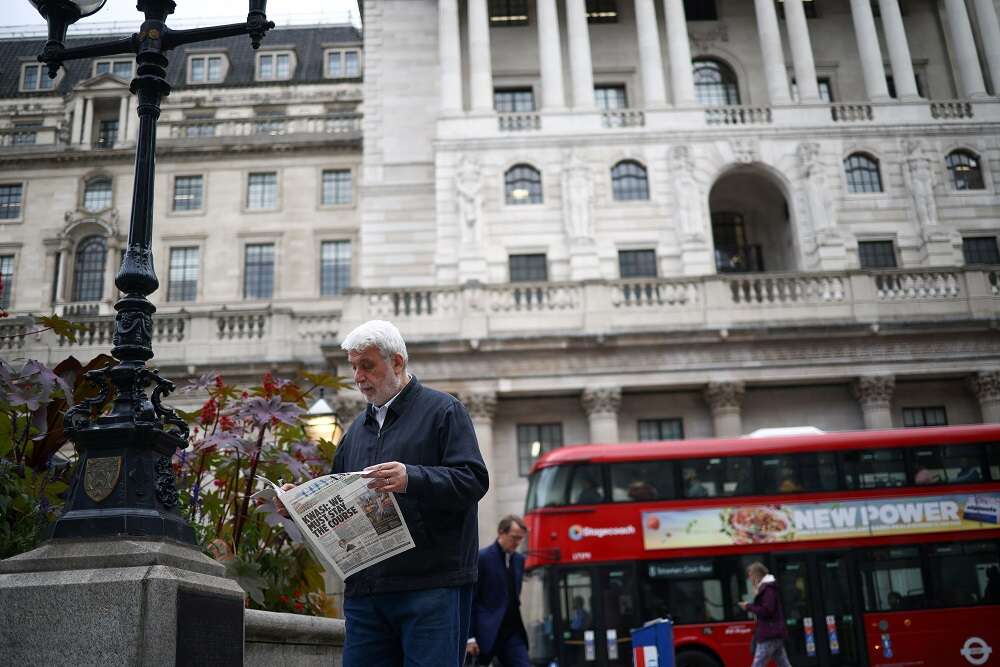
LONDON (Reuters) -The Bank of England will gauge the health of Britain’s government bond market before it unwinds the emergency intervention it launched after the governement’s new economic plan sparked upheaval, the bank said on Thursday.
The BoE waded into Britain’s 2.1 trillion pound ($2.4 trillion) gilt market last Wednesday to stop panic selling of long-dated bonds in the aftermath of finance minister Kwasi Kwarteng’s “mini budget” announcement last month.
Kwarteng announced 45 billion pounds of unfunded tax cuts in the Sept. 23 statement alongside large energy subsidies and other measures aimed at boosting growth, but financial markets baulked at the extra borrowing.
“Once the purchase programme is complete, the operation will be unwound in a smooth and orderly fashion once risks to market functioning are judged by the bank to have subsided,” BoE Deputy Governor Jon Cunliffe said in a letter sent to parliament’s Treasury Committee.
“The approach to unwind will depend, among other things, on the scale of actual purchases, the market conditions during those purchases and the market conditions when the purchases end.”
The letter was in response to questions from the Treasury Committee Chair Mel Stride seeking explanation on why the BoE took the “unusual” step to intervene, and what potential implications the intervention could have for monetary policy.
Cunliffe’s letter spelt out how markets reacted swiftly to Kwarteng’s fiscal statement, with gilt prices suffering far steeper declines than other countries’ bonds – at odds with the government’s explanation that global factors were behind the moves.
On Sept. 28, the BoE launched a programme to potentially buy up to 65 billion pounds of gilts with a maturity of at least 20 years in a series of daily operations.
It also delayed the start of a scheme to sell down 838 billion pounds of government bond holdings built up after the global financial crisis and during the COVID-19 pandemic.
So far the BoE has purchased less than 3.7 billion pounds of gilts in its new program and did not buy any on Tuesday or Wednesday.
PENSIONS FUNDS
The letter explained the market dynamic that led to its intervention, singling out forced selling among liability-driven investment (LDI) funds, saying that on Sept. 27, it was “likely that these funds would have to begin the process of winding up the following morning”.
LDI is a popular product sold by asset managers to pension funds, using derivatives to help them “match” assets and liabilities so there is no risk of shortfall in money to pay pensioners.
The bank said it was monitoring such funds to ensure they were on a sustainable footing when the programme ended.
“While it might not be reasonable to expect market participants to insure against all extreme market outcomes, it is important that lessons are learned and appropriate levels of resilience ensured,” Cunliffe said.
($1 = 0.8883 pounds)
(Reporting by Kylie MacLellan, Muvija M and William James, writing by Andy Bruce; Editing by Toby Chopra)


